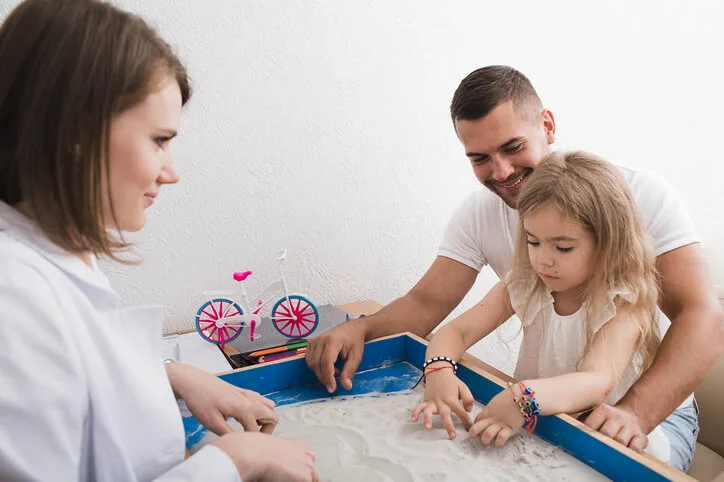In the big picture of life, people with autism have their own special journey. They face challenges and successes that need specific help. To give the best support for autism, different therapies become important. Each therapy is like a puzzle piece, making life better in its own way.
One vital therapy is physiotherapy. It helps not just with the body but also with things like movement, coordination, and how the body stands. Physiotherapy uses exercises and activities that are personalized for each person. This not only keeps the body healthy but also improves how the senses work together.
Another important therapy is Occupational Therapy. This kind of therapy helps people learn skills they need for everyday life. It covers things like taking care of yourself and getting better at small movements. Occupational therapy is like a helpful guide, making people more independent and confident.
Sensory Integration is an important therapy for people with autism. It helps them deal with their unique sensitivities to things like touch, sight, and sound. This therapy uses a structured approach to help process sensory information, making emotions more balanced and regulated.
Music Therapy is another helpful approach. It focuses on the harmony of sounds to help people express themselves emotionally. The rhythmic melodies in music become a strong tool for communication and self-expression. The calming and transformative nature of music helps individuals discover more about themselves, encouraging them to express feelings in ways other than regular communication.
Clinical Yoga is a new way to help people with autism feel better both physically and mentally. It combines exercises, breathing, and mindfulness to make a person stronger and more resilient in their mind. This helps them deal with the challenges of everyday life. Behavioral Therapy is also important in this approach. It uses proven methods to handle difficult behaviors and build positive habits. It acts like a guide, teaching individuals how to respond better to different situations.
Education is key to helping people with autism succeed, and Educational Rehabilitation is a big part of this. It gives them the tools they need to do well in school and in social situations. Special programs and personalized learning strategies are important for success. When all these therapies work together, they create a strong support system that meets the many needs of individuals with autism. This helps them live a more fulfilling and enjoyable life.
In Kochi, there’s a special place called Jeevaniyam Ayurveda Hospital that helps people with autism feel better. They use both traditional Ayurvedic methods and modern ways to give the best care. The team at Jeevaniyam knows that using different therapies together is important to help people with autism in the best way.
Jeevaniyam Ayurveda Hospital believes in taking care of the whole person, not just one part. They use ancient healing methods along with new therapies to create a plan that works for each person with autism. It’s like making a special support system that fits each person’s needs.
Dealing with autism is a personal and emotional journey. It involves using different therapies that all work together to make life better. Physiotherapy helps with the body, music therapy helps with expressing feelings, and clinical yoga helps with mindfulness. Jeevaniyam Ayurveda Hospital is a place that shows how combining old wisdom with new ways can make a big difference in helping people with autism.
When we talk about supporting people with autism, it’s important to remember that everyone is different. They all need their own unique and caring approach to help them grow, be strong, and have a life full of possibilities. Jeevaniyam Ayurveda Hospital is a great example of how using different methods together can make a positive change in the lives of people with autism.











